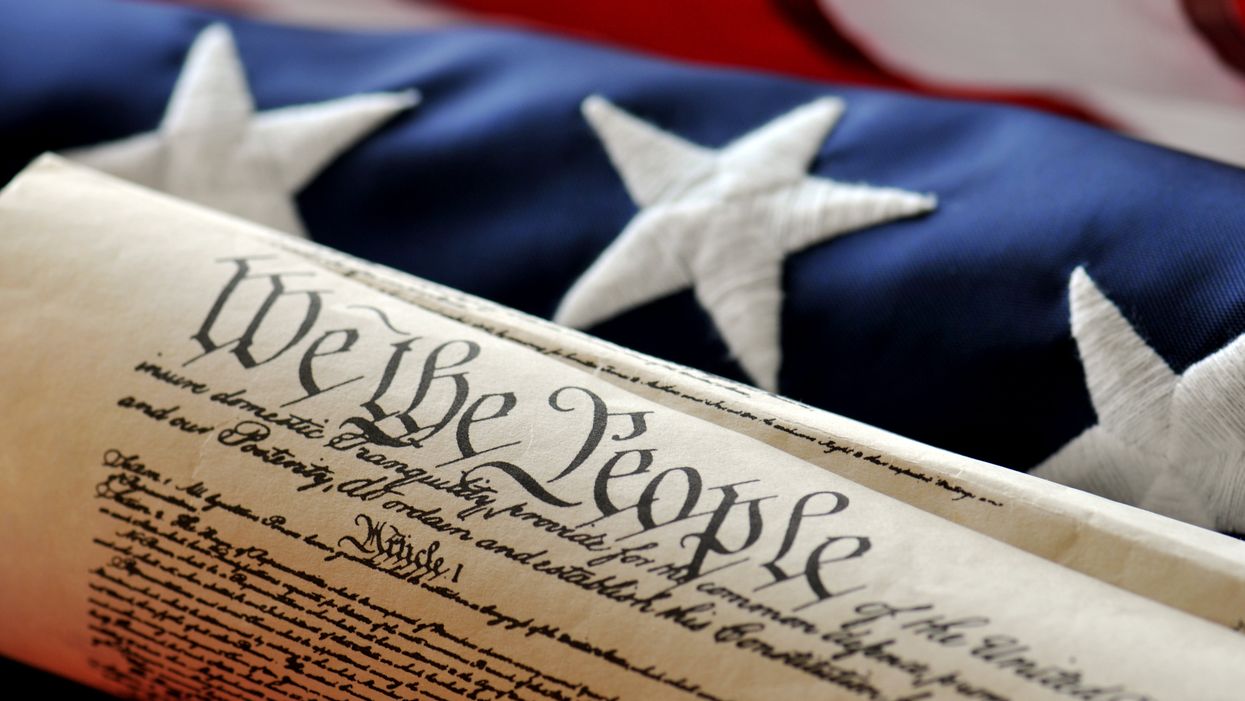If given one moral word to use in a campaign speech, a Democrat would probably pick "justice" whereas a Republican would probably pick "freedom."
Republicans love to talk about freedom because they believe the purpose of government is to ensure our freedom — freedom from foreign invasion; freedom from assault, theft, bribery and other forms of interference in our lives; freedom to have a business and operate within a broadly free market; and freedom to pursue our own good, which includes the good of our families.
Democrats love to talk about justice because they believe the purpose of government is to promote a just society — with justice in our election system so all have an equal right to vote; justice for women against those men who have harassed or assaulted them; justice ensuring those who have lost out in terms of natural talents and socio-economic class, especially children, are provided the means to have the same opportunities as those who have been more lucky.
Freedom and justice can both draw forth deep emotions from their advocates.
Those denied freedom feel as though they have been wronged.
Someone whose father fought and died in Vietnam or World War II may have deep emotions connected to the value of freedom because the dad fought and died for it.
Likewise, someone whose mother was raped as a teenager may have deep emotions connected to the value of justice because they always find themselves standing up for fellow citizens who have been violated in some deeply personal way. It is one thing to have a car stolen and quite another to have a man throw you on the back seat of his car and force himself on you.
Many different theories of freedom and justice have been advanced by Western democratic thinkers — whether they fall into the liberal, libertarian, conservative, social democrat or socialist traditions. College students in political philosophy classes learn that rival theories don't accept the same definitions of such moral concepts as freedom, justice, equality and autonomy. Instead, rival theories typically define and develop moral concepts in different ways. They may not use all the same concepts, and they may draw differing sets of connections among the concepts.
This is why political philosophers often talk past each other in their debates — because, in the end, the values they embrace and the perspectives they advance are different. It would be nice if Don Lemon on CNN, Tucker Carlson on Fox, Rachel Maddow on MSNBC and all our other prominent media commentators pointed this out when discussing the debates between politicians.
It is simply not true that Democrats and Republicans, or even some factions within each party, share the same "American" values and only disagree about the means for upholding them. Our politicians — who admittedly rarely get to the point of systematic explanations of the concepts and values that drive their arguments — do not share the same values as their opponents.
Within American society there is room for basic disagreement over basic values like freedom and justice, and it is precisely that room that helps explain why voters who are indecisive or uninterested have difficulty understanding the fights between the parties. Add to these conceptual fights all of the theatrics and the posturing, and it becomes very hard to understand what values really drive particular points of view.
Achieving a decent level of national respect for the differing opinions of Democrats and Republicans will require the media doing more to help voters understand how terms like freedom and justice are being used by politicians — and explaining whether their candidates' overall positioning is consistent with how they are defining their terms.
It is then up to voters to decide which points of view they prefer, whether the candidates in question have done what they claim they have done, whether they like the visions proposed and whether they like and respect the people who are presenting them.
But we should not assume all that divides candidates is their records, the means they took to promote them and their personal character — because they usually have very different values and very different priorities in the first place.




















